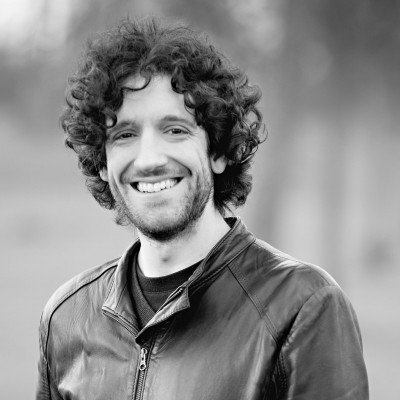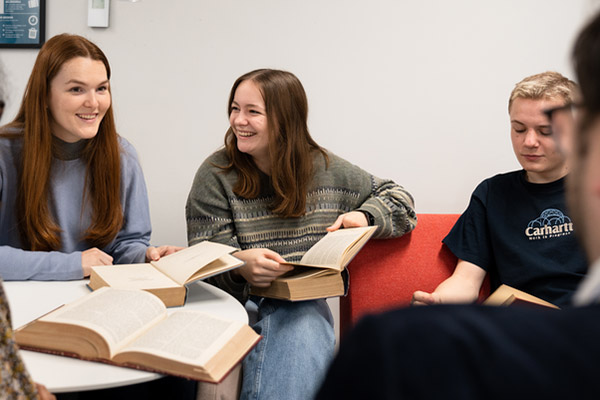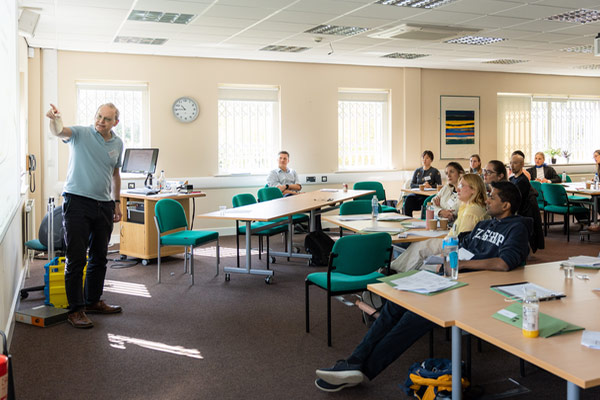View semester dates

BA (Hons) History/Economics
Learn how studying the past can help us predict market futures
Year of entry: 2026/27
View semester dates
Join two highly-performing departments and graduate as a creative and analytical problem solver.
Economics uses theory and empirical evidence to explain the dynamism of economic systems. History seeks to understand social, political, and intellectual shifts. We can use these to determine the causes and consequences of economic trends.
This course brings these disciplines together. You'll use the past to examine economic problems societies face today. Join two highly-performing departments and graduate as a creative and analytical problem solver.

It's been a long journey, and I always emphasize that it started at York, where I learned so much of the economics I've used throughout my career.
Professor Daron Acemoğlu (BA Economics, 1989; Nobel Prize for Economic Sciences, 2024)
Course content
Your modules in History progress from broad to specialised topics. Core modules in the first year introduce you to the broad sweep of history across time and place and historical problems. You develop this in the following years, cultivating your expertise, and - if you choose - leading up to an 8,000-word dissertation in your final year.
In Economics, you'll be introduced to key topics during Year 1. Years 2 and 3 will enable you to consolidate and expand upon this knowledge via a series of study modules which have been developed to give you a thorough understanding of the subject.
Year 1
Your first year introduces several economic theories, in addition to covering basic historical perspectives on markets and economic trends.
Core modules
Option modules
You will study three option modules. Examples can be found below. Some option module combinations may not be possible. The options available to you will be confirmed after you begin your course.
- Foundations of Economic Theory OR Maths for Economists
- Knowledge and Belief in World History OR an elective module
- Probability and Statistics
Academic integrity module
In addition to the above you will also need to complete our online Academic Integrity module.
Year 2
Your second year focuses on important domestic and international economic concepts. You'll connect these ideas with an in-depth look into a specific historical period of your choice.
Core modules
Option modules
You will also study three option modules. In semester one, you'll study either Microeconomic Theory or Macroeconomic Analysis and Policy core modules, plus two option modules (one in Economics and one History Exploration module). You can alternatively choose to take both of these Economics core modules, plus one History Exploration module. In semester two, you'll study two core modules and either one History Exploration modules or an elective.
Economics
- Topics in Economic History
- Dynamic Modelling
- Development Economics
- Econometric Theory
- Alternative Perspectives in Economics
- Industrial Organisation Strategy
- Environmental Economics
History Explorations
- Empire and Cultural Exchange in Asia 1500-1700
- Black Radicalism
- Ancien Régime France, 1610-1789
- From Grave Robbers to Gene Therapy: The Rise of Modern Medicine
- China: An Economic and Environmental History, 1870-1970
- Difficult Pasts and Haunted Presents: Memory and its Discontents c. 1945- c. 2010
- Humanism, Magic & Science, c.1500-c.1700
- Before the Mongols: Nomadic Empires of Central Eurasia, 900-1200
- Using and Abusing the Past in Britain, 1835-2018
- Gender, Enlightenment and Revolution in Eighteenth-Century Europe
- From the Global Shadows: Africa and the World since the 1950s
- Health for all? International Health from Colonial Medicine to Covid Vaccine
- Powerful Impressions: Culture and Politics in the Post-1945 United States
- Heterosexual Africa? Sexuality, Power, and Politics in Africa since 1900
- Persecution and Toleration in Early Modern Britain
- Catherine the Great
- Social Science and Modern Britain, c1880-c1970
- Crime and Society in Britain and Ireland since 1750
- Bankers, Merchants, and Poets: Florence and the Roots of the Renaissance
- Communist Europe: Crisis, Transformation & Memory after the Second World War
- Historical Fictions and Frictions: Fictionalising the Past
- Chivalry, Identity and Love 1350-1450
- Vikings and Historians: Historiographical Dialogues through the Ages
- The Scientific Revolution, 1500-1700
- Containing Multitudes: Inequality and the City in Britain and its Empire post-1800
Elective modules
You may be able to replace one option module with an elective module, studying a complementary subject, a language or an interdisciplinary topic.
Year 3
In your final year of the History and Economics degree, you will study one core module, plus three option modules - including one History Special Subject (taken in two parts, one per semester). You will then choose between taking additional History and Economics option modules and writing an 8,000-word History dissertation.
Core module
Special subject
Option modules
- one Economics option module AND either:
- History Dissertation
or
- one Comparative History option module, and one Economics option module or an elective module
or
- two Economics modules OR one Economics option module and an elective module.
Economics
- Applied Econometrics
- Bubbles, Panics and Crashes
- Commodities Markets and Derivative Securities
- Econometric Methods for Research
- Economics of Social Policy
- Experimental and Behavioural Economics
- Financial and Time-Series Econometrics
- Game Theory
- Health Economics
- International Economic Growth and Development
- International Economics
- Labour Economics
- Macroeconomics: Topics in Theory for Policy
- Monetary Economics
- Political Economics
- Structure and Regulation of Financial Markets
Comparative History
History - Special Subjects
- From Colonial to Post-Colonial States? The Twentieth-Century Caribbean
- Imperial Japan, 1890-1950
- Popular Politics? The History of British Political Culture since 1945
- The French Wars of Religion
- Race, Place and Health in Britain and its Empire, 1880-1960
- Hong Kong: Decolonisation and Development, 1945-97
- Thomas More: Learning, Politics and Religion in England, 1500-35
- Ploughing the Sea? The Spanish American Wars of Independence, 1750-1830
- Rome Reborn: Culture and Society c.1575-c.1655
- Possession: Objects and Ownership in Early Modern England, 1650-1750
- Prussia and the Unification of Germany, 1815-1918
- Mao and Maoism
- Children and Childhood in Britain and Empire, 1830-1990
- Reading and Writing in Medieval England
- Ireland in the Age of Revolution
- The Ghosts of Gandhi: India and Africa since the nineteenth century
- The First Islamic Empire
- Exiled Lives: English Nuns in Catholic Europe, 1600-1800
- The Russian Revolution, 1917-21
- Poverty and the Welfare State in Post-War Britain
- Rebellion and Revolution: Britain, 1637-1653
- Joan of Arc
- Revolution in the Streets: Faith, Poverty, & Religious Ferment, c.1200
- Francis Bacon: Myth, Magic and Morals
- Black British History and Decolonisation
Elective modules
You may be able to replace one option module with an elective module, studying a complementary subject, a language or an interdisciplinary topic.
Our modules may change to reflect the latest academic thinking and expertise of our staff, and in line with Department/School academic planning.
Learning outcomes
Every course at York has been designed to provide clear and ambitious learning outcomes. These learning outcomes give you an understanding of what you will be able to do at the end of the course. We develop each course by designing modules that grow your abilities towards the learning outcomes and help you to explain what you can offer to employers. Find out more about our approach to teaching and learning.
Learning outcomes for this course
- Communicate in-depth understandings of historical scholarship, including the historical development of contemporary economic systems and institutions, and apply concepts and principles derived from economics to the interpretation of the past.
- Approach problems in a critical and questioning fashion, including the evaluation of existing arguments, economic models and methods, and the assessment of the value and significance of different forms of data and evidence.
- Engage with a range of theoretical and conceptual perspectives on economic systems and make comparisons and connections between the economic features of different periods, places and societies at a local and global level.
- Explore the causes of a historical or contemporary issue and make predictions, including identifying useful social, economic and financial data, constructing meaningful questions, deploying models, and applying mathematical methods and tools.
- Move at ease between a variety of information types, including material culture, visual imagery and databases with particular strengths in understanding and deploying information from texts and statistical, econometric and computer data.
- Convey complex ideas with clarity and precision and make sophisticated, original and persuasive arguments or predictions based on qualitative evidence, modelling techniques and data analysis.
- Manage time and work load effectively in order to complete a project or execute a programme alone or in collaboration with others.
- Use insights gained from the study of the factors that have shaped the economic life of different societies across history, and around the world, to engage constructively and critically with the political, cultural, social and economic aspects of contemporary debate and policy making.

We have alumni that come back and speak to us and let us know about what career journey they've been on and where they've ended up now. They share loads of different opportunities, which has been amazing!
Fees and funding
The fees and funding information here is for students starting in the 2026/27 academic year.
If you take a year abroad or year in industry you'll pay a reduced rate of fees for that year.
Annual tuition fees
| UK (home) | International and EU |
|---|---|
| £9,535 (TBC) | £27,250 |
The UK government has announced its intention to increase tuition fees from £9,535 to £9,790 for the 2026/27 academic year. We expect this to apply to new UK (home) undergraduate students starting their studies in September 2026.
UK (home) or international fees?
The level of fee that you will be asked to pay depends on whether you're classed as a UK (home) or international student. Check your fee status.
Fees for subsequent years
- UK (home) fees may increase within the government fee cap in subsequent academic years. We will notify you of any increase as soon as we can.
- International fees are subject to increase in subsequent years in line with the prevailing Consumer Price Index (CPI) inflation rate (up to a maximum of 10%).
More information
For more information about tuition fees, any reduced fees for study abroad and work placement years, scholarships, tuition fee loans, maintenance loans and living costs see undergraduate fees and funding.
Additional costs
You will have to pay for the cost of printing some assignments for submission as assessed work in Years 2 and 3.
Funding
We'll confirm more funding opportunities for students joining us in 2026/27 throughout the year.
- UK government loans
- UK scholarships and bursaries
- International scholarships
- Country-specific funding
- US loans
Department funding
York, Oxford, Cambridge, Imperial
Just four UK universities are rated Gold for teaching and top ten for research* in the latest national assessment exercises.
* Awarded joint 10th in the Times Higher Education ranking of the Research Excellence Framework 2021.
Teaching and assessment
You’ll study and learn with academics who are active researchers, experts in their field and have a passion for their subjects. Our approach to teaching will provide you with the knowledge, opportunities, and support you need to grow and succeed in a global workplace. Find out more about our approach to teaching and learning.
Teaching format
We focus on small-group teaching that is interactive and engaging. This includes lecturers, seminars, discussion groups, specialist workshops and field trips.
Timetabled activities
In your first year, you can expect:
| Lectures | 7 hours per week |
|---|---|
| Seminars | 3 hours per week |
| Workshops | 3 hours |
| Practicals | 0-2 hours per week |
These figures are representative of a typical week. Your contact hours will vary throughout the year due to your module choices, non-compulsory classes, exam periods and changes to scheduled activities.
Outside your timetabled hours, you'll study independently. This may include preparation for classes, follow-up work, wider reading, practice completion of assessment tasks, or revision.
In the UK, full-time students are expected to spend 1,200 hours a year learning. That's about 40 hours of classes and independent study each week during semesters. Everyone learns at a different rate, so the number of hours you spend on independent study will be different to other students on your course.
Teaching location
You will be based in both the Department of History and the Department of Economics and Related Studies on Campus West. Your teaching will take place in a variety of locations on Campus West.
About our campus
Our beautiful green campus offers a student-friendly setting in which to live and study, within easy reach of the action in the city centre. It's easy to get around - everything is within walking or pedalling distance, or you can use the fast and frequent bus service. Take a campus tour.
Assessment and feedback
Your first-year work doesn't contribute toward your final marks. We recognise that students are only beginning to develop over the course of their degree.
From Year 2 onward, formal assessments contribute toward your degree. In your third year, your optional 8,000-word dissertation focuses on a specific topic of your choice.
- Before formal assessment in many modules, you'll carry out procedural work. You will receive extensive written feedback, which will help you in your formal assessment.
- Assessments range from research essays, to collaborative projects, to open 'take-home' examinations.
- Your optional final-year dissertation should be a topic that is interesting to you. Don't be afraid to explore.
Careers and skills
The History and Economics degree develops skills that are highly valued by employers. Our graduates are adept at engaging in argument and proposing alternative solutions. The mix of abstract thought and quantitative techniques develops excellent technical skills for solving complex problems.
See what our graduates are doing
Career opportunities
Our graduates have gone on to work in sectors such as:
- Law
- Accountancy
- Banking and investments
- Teaching
- Politics, diplomacy and government
- Finance
- Commerce and public relations
Transferable skills
You'll graduate with a wide range of transferable skills. These include:
- critical and analytical thinking
- pattern recognition and problem solving
- excellent communication skills
- time management
- independent, high-level research skills
- experience in working with different information types

York is a beautiful city. It’s quite a privilege to spend your days encountering that history, stumbling around incredibly long cobbled streets! I really miss it as a place. That’s why I’ve loved coming back for the past nine years to give talks – it feels like coming full circle.
Public Historian & Podcast Host
Entry requirements
| Qualification | Typical offer |
|---|---|
| A levels | AAA including either History or Classical Civilisation. A level Mathematics is a preferred subject, but not essential. If you do not have an A level in Mathematics then GCSE Mathematics Grade 7(A) is essential. |
| Access to Higher Education Diploma | 39 credits at Distinction including at least 9 credits in History-related units and 6 credits at Merit or higher, plus Level 3 units in Mathematics. If you do not have Level 3 Mathematics units then GCSE Mathematics Grade 7(A) is essential. |
| BTEC National Extended Diploma | DDD with additional A Levels or equivalent qualifications in either History or Classical Civilisation. A-Level Mathematics is a preferred subject, but not essential. If you do not have an A level in Mathematics then GCSE Mathematics Grade 7(A) is essential. We may also consider relevant units in your BTEC as A Level/GCSE Mathematics equivalent. |
| European Baccalaureate | 85% overall, including 85% in History and 80% in Mathematics at either elementary or standard level |
| International Baccalaureate | 36 points, including 6 at Higher Level in History. Grade 5 in Higher Level Mathematics or 7 in Standard Level Mathematics (either Analysis and Approaches or Applications and Interpretations) is preferred, but not essential. If you do not have HL or SL Mathematics then MYP Mathematics Grade 6 or GCSE Mathematics Grade 7(A) is essential. |
| T levels | We are currently not accepting T Levels for this course unless an additional A Level (or equivalent qualifications) in History or Classical Civilisation has been taken. |
| Scottish Highers / Advanced Highers | Advanced Highers - AB in History and Mathematics plus Scottish Highers - AB We may also be able to consider three Advanced Highers or a combination of Highers and Advanced Highers, where an applicant does not meet the grade requirement through Highers alone. Please contact us to discuss your qualifications. |
| International foundation programme | Foundation Certificate from our International Pathway College or an appropriate alternative. |
| Other international qualifications | Equivalent qualifications from your country |
Alternative offers
Meeting the following additional criteria may qualify you for an alternative offer.
| Criteria | Adjustment |
|---|---|
| Widening participation | BBB including B in History. A-Level Mathematics is a preferred subject, but not essential. If you do not have an A level in Mathematics then GCSE Mathematics Grade 7(A) is essential. This is conditional upon successful completion of the WP programme including the YorJourney module (Black Access Programme, Next Step York) or successful completion of Realising Opportunities More about widening participation. |
| Contextual offer | ABB including A in either History or Classical Civilisation. A-Level Mathematics is a preferred subject, but not essential. If you do not have an A level in Mathematics then GCSE Mathematics Grade 7(A) is essential. |
| EPQ | If you achieve A or higher in the EPQ, you may be eligible for an alternative offer up to one A level grade (or equivalent) below our typical offer. |
English language
If English isn't your first language you may need to provide evidence of your English language ability. We accept the following qualifications:
| Qualification | Minimum requirement |
|---|---|
| IELTS (Academic) | 6.5, with a minimum of 6.0 in each component |
| IB English | A score of 4 in English A or 5 in English B (Higher Level or Standard Level) |
| Cambridge CEFR | 176, with a minimum of 169 in each component |
| Oxford ELLT | 7, with a minimum of 6 in each component |
| Oxford Test of English Advanced | 136, with a minimum of 126 in each component |
| Duolingo | Integrated subscores: 120 overall, with a minimum of 105 in each component |
| GCSE/IGCSE/O level English Language (as a first or second language) | Grade C / Grade 4 |
| LanguageCert SELT | B2 with a minimum score of 33/50 in each component |
| LanguageCert Academic | B2 with a minimum score of 33/50 in each component |
| Kaplan Test of English Language | 478 Main Flight score with 444 in each component |
| Skills for English | B2: Merit overall, with Pass with Merit in each component |
| PTE Academic | 61, with a minimum of 55 in each component |
| TOEFL | 87 overall, with a minimum of 21 in each component (taken before January 2026) 4.5 with 5 in Listening and 4.5 in each other component (taken after January 2026) |
| Trinity ISE III | Merit in all components |
| Other English language qualifications | We also accept other English Language qualifications, including various school-leaving certificates. |
For more information see our undergraduate English language requirements.
If you haven't met our English language requirements
You may be eligible for one of our pre-sessional English language courses. These courses will provide you with the level of English needed to meet the conditions of your offer.
The length of course you need to take depends on your current English language test scores and how much you need to improve to reach our English language requirements.
After you've accepted your offer to study at York, we'll confirm which pre-sessional course you should apply to via You@York.
Next steps
Contact us
Get in touch if you have any questions
History Undergraduate Admissions
Discover York








